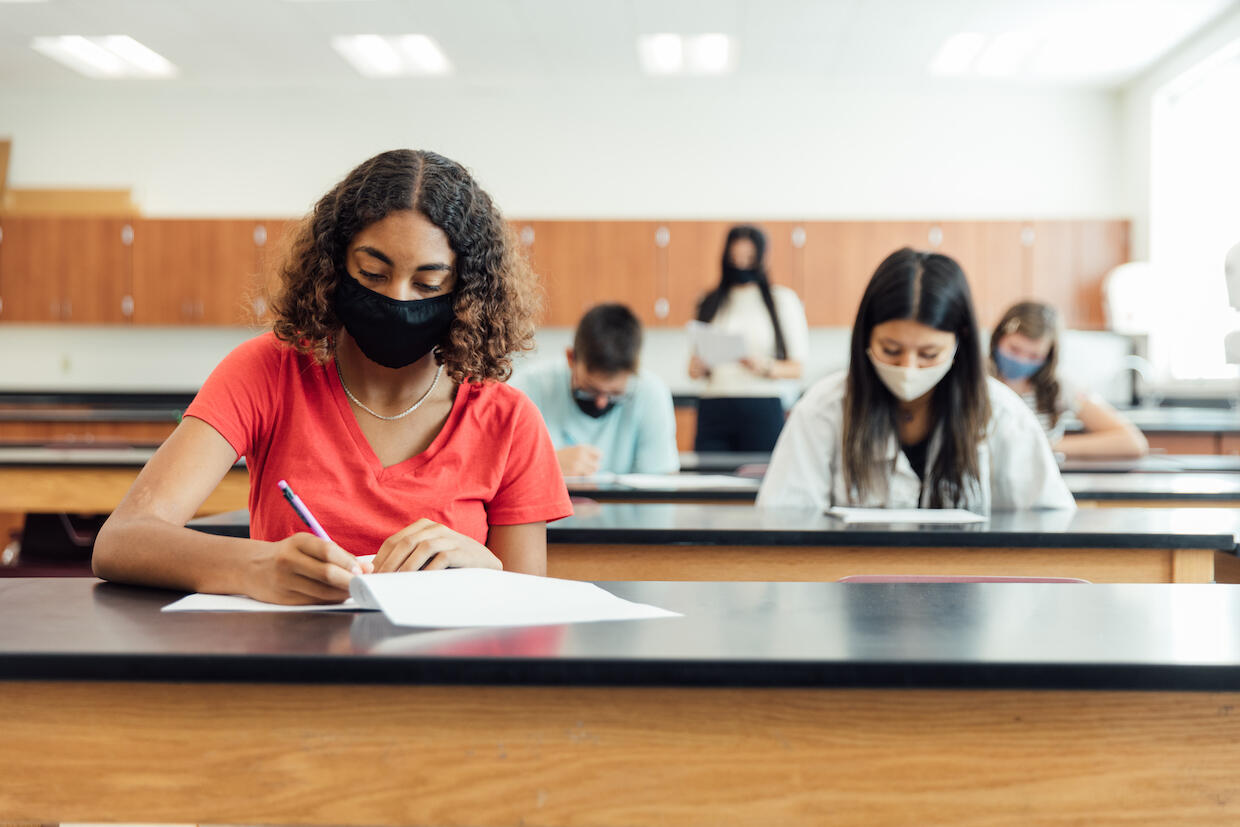
June 2, 2021
Virtual disabilities conference offers insights on moving forward amid the pandemic
Approximately 1,300 professionals from around the country are participating in the “Disability Services in the Age of COVID-19” conference this week co-hosted by VCU and the University of Connecticut.
Share this story
Approximately 1,300 professionals from around the country are participating in a virtual “Disability Services in the Age of COVID-19” conference this week co-hosted by Virginia Commonwealth University and the University of Connecticut.
“With the number of professionals registered, the institute has the potential to be one of the most attended conferences on disability in higher education,” said Ian Kunkes, director of student accessibility and educational opportunity and co-chair of VCU’s Transforming Accessibility Initiative.
The Collaborative on Postsecondary Education and Disability at UConn has been holding the Postsecondary Disability Training Institute annually for over 20 years. Historically the conference offers workshops and sessions over three to four days featuring professionals on disability and the educational field.
“VCU Transforming Accessibility Initiative's partnership with UConn and [the Postsecondary Disability Training Institute] to facilitate this vital national conference reflects VCU's ongoing commitment to diversity, inclusion and equitable access to those in our community with disabilities,” said Crystal C. Coombes, accessibility administrator serving as the Americans with Disabilities Act coordinator for VCU and Transforming Accessibility Initiative co-chair. “We believe the partnership will foster continued virtual training in the field of disability services and lead to best practices, a strategic goal at VCU.”
Last year’s conference was canceled because of the pandemic. When Kunkes and Coombes heard this year’s conference was in jeopardy as well, Kunkes reached out to conference organizers and offered to have the Transforming Accessibility Initiative co-sponsor a virtual event.
“Unfortunately last year couldn’t have been a better opportunity to bring people together professionally in a virtual environment,” Kunkes said. “It was a time when people needed guidance and support. All of us are dealing with the same issues on disability and accessibility.”
The conference gives people the chance to hear from professionals who have found successful ways of moving forward amid the pandemic.
“This conference is really about a conversation,” Kunkes said. “It’s an interesting opportunity for us to get together and say here’s what we have tried and works and here’s what we tried that didn’t work.”
Not all of the changes brought about by the pandemic have been negative, Kunkes said.
“We have surveyed students, and we are getting positive feedback as well,” he said. “The switch to virtual learning has benefited some students who have medical conditions, learning differences or are immunocompromised, for example. The increased flexibility and alternative approaches have opened up a world of possibilities for inclusive learning. Now it is up to us to figure out how to continue to meet the needs of students as we return to the classroom.”
Adapting to either virtual or hybrid learning during the pandemic has allowed professors to be more flexible in their assignments and approach classes in new ways, Kunkes said.
“I hope higher education will learn from this,” he said. “Having the ability for students with disabilities to be a little more flexible in how they were taking classes has been beneficial for them. If they have a flare-up in symptoms, they can take their classes from home.”
In years past, the conference has featured 40 to 50 speakers. This year, each topic is being led by one expert on the subject. Topics range from technological advances to legal updates and emerging trends.
The conference additionally includes two panel discussions and both a professional and a student question-and-answer period. The student panel includes two VCU alums — 2019 graduate Majesta-Doré Legnini, who has a dual degree in exercise science and public policy and administration and was the inaugural president of the Association of Students with Disabilities and Chronic Conditions; and Lynne Fetter, who received her graduate degree in social work this year.
Kunkes is glad that the conference is taking place this year.
“Being able to turn this into a virtual format because of COVID spoke to the mission of the conference and our Transforming Accessibility Initiative at VCU,” he said.
Recorded sessions from the "Disability Services in the Age of COVID-19” conference will be available online for the next week and can be viewed by visiting the conference registration page at https://uconnuecs.
Subscribe to VCU News
Subscribe to VCU News at newsletter.vcu.edu and receive a selection of stories, videos, photos, news clips and event listings in your inbox.










